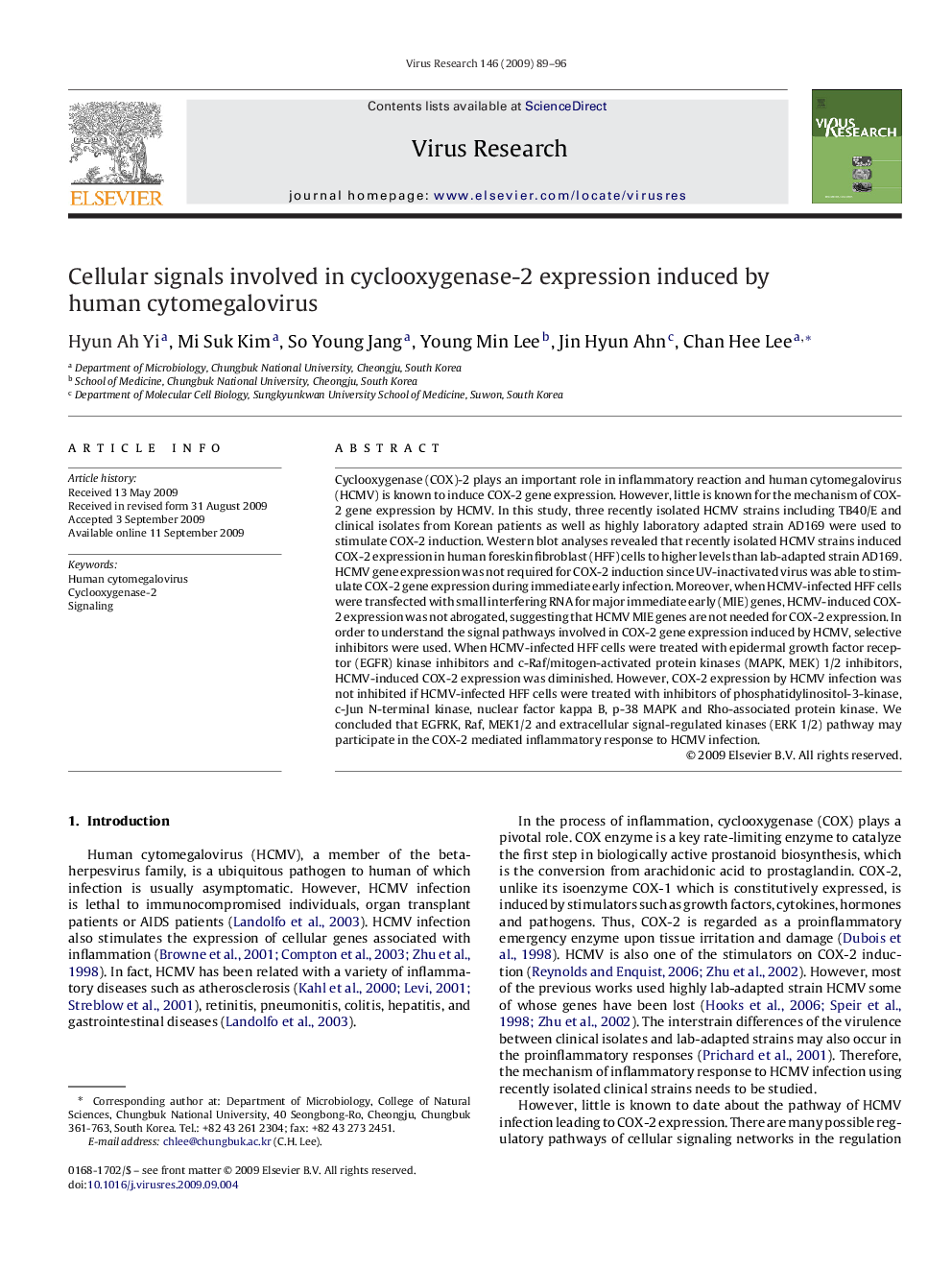| Article ID | Journal | Published Year | Pages | File Type |
|---|---|---|---|---|
| 3429561 | Virus Research | 2009 | 8 Pages |
Cyclooxygenase (COX)-2 plays an important role in inflammatory reaction and human cytomegalovirus (HCMV) is known to induce COX-2 gene expression. However, little is known for the mechanism of COX-2 gene expression by HCMV. In this study, three recently isolated HCMV strains including TB40/E and clinical isolates from Korean patients as well as highly laboratory adapted strain AD169 were used to stimulate COX-2 induction. Western blot analyses revealed that recently isolated HCMV strains induced COX-2 expression in human foreskin fibroblast (HFF) cells to higher levels than lab-adapted strain AD169. HCMV gene expression was not required for COX-2 induction since UV-inactivated virus was able to stimulate COX-2 gene expression during immediate early infection. Moreover, when HCMV-infected HFF cells were transfected with small interfering RNA for major immediate early (MIE) genes, HCMV-induced COX-2 expression was not abrogated, suggesting that HCMV MIE genes are not needed for COX-2 expression. In order to understand the signal pathways involved in COX-2 gene expression induced by HCMV, selective inhibitors were used. When HCMV-infected HFF cells were treated with epidermal growth factor receptor (EGFR) kinase inhibitors and c-Raf/mitogen-activated protein kinases (MAPK, MEK) 1/2 inhibitors, HCMV-induced COX-2 expression was diminished. However, COX-2 expression by HCMV infection was not inhibited if HCMV-infected HFF cells were treated with inhibitors of phosphatidylinositol-3-kinase, c-Jun N-terminal kinase, nuclear factor kappa B, p-38 MAPK and Rho-associated protein kinase. We concluded that EGFRK, Raf, MEK1/2 and extracellular signal-regulated kinases (ERK 1/2) pathway may participate in the COX-2 mediated inflammatory response to HCMV infection.
